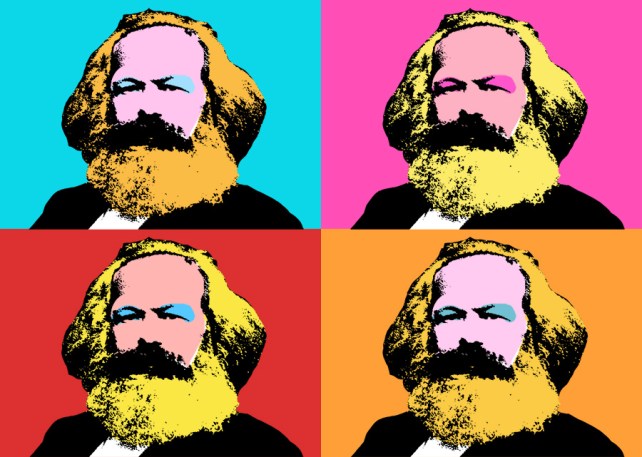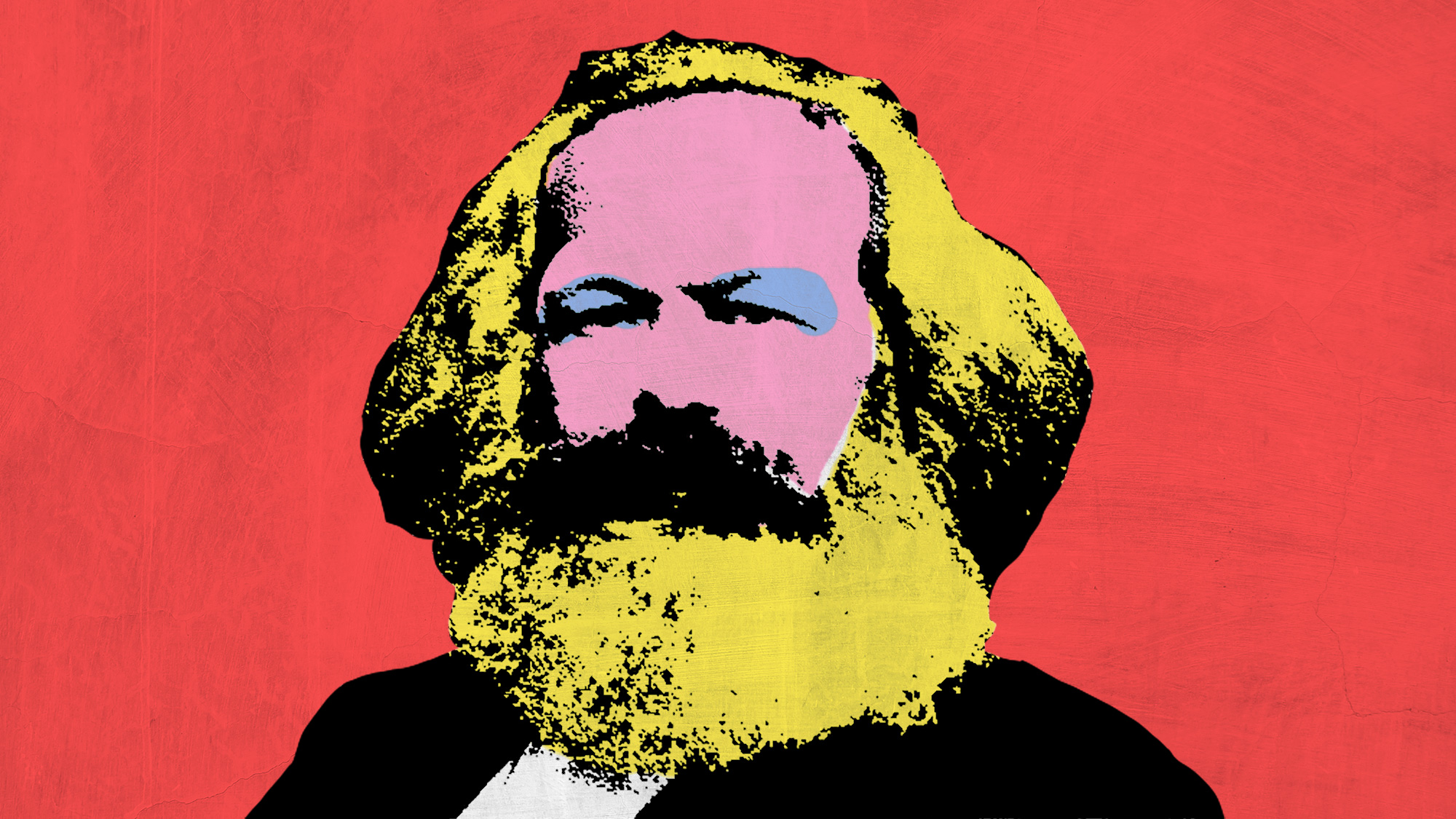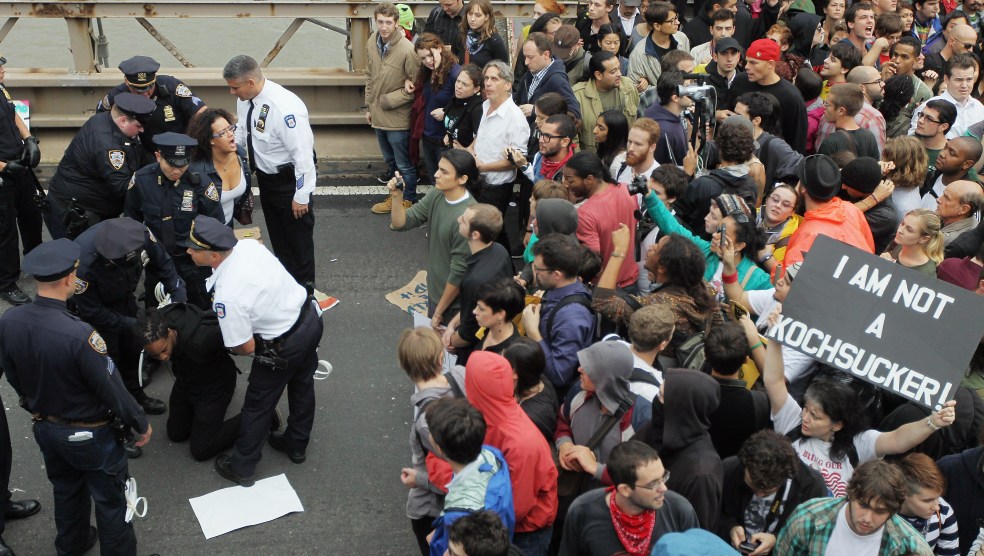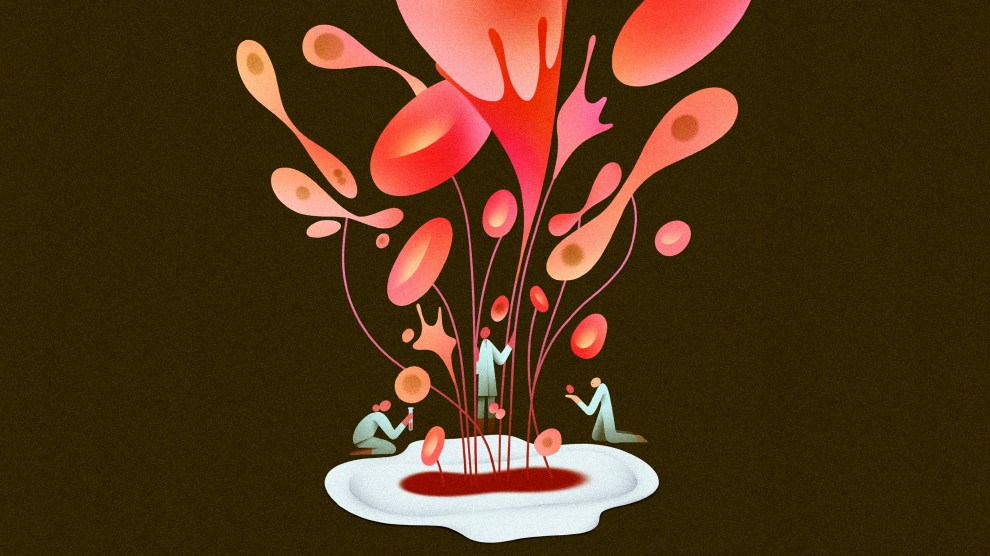Political correctness has always mattered a lot to me. As far back as I can remember it’s been important to be on the right side of things—further even: In my baby book under “baby dislikes” my dad wrote “nuclear proliferation” and “caviar.” In middle school I started going to anti-war rallies and spending my time arguing dress code constitutional law with the principal. My high school class voted me “most outspoken,” which was a nice way of saying that I wouldn’t shut the fuck up about politics, no matter the subject. There are a lot more people who complain about “PC” than people who actually conform to the stereotypes, but I more or less do.
When I was a culturally engaged kid (roughly ’96-’06), political correctness was politically incorrect. In the Bay Area where I grew up we could assume most people were liberals, Democrats, and more specifically anti-Bush—if not necessarily anti-war. But this was the heyday of the Man Show and South Park and Crank Yankers and, especially as a boy, the last thing you were supposed to be was offended. By that time conservatives had already been bellyaching for years on the covers of national magazines about the “PC” menace, gleefully comparing college students to the Red Guards and, yes, Nazi stormtroopers. The script hasn’t changed much.
[This essay is an excerpt from Shit is Fucked Up and Bullshit: History Since the End of History, published by Melville House.]
Political correctness connotes not just the inability to let go and enjoy yourself (e.g. I have never seen a Will Ferrell comedy), but a weak character. American history and humanities curricula still draw heavily on Cold War liberal ideas about the individual, and to be politically correct, we learn, is to surrender rather than cultivate your judgment. Fahrenheit 451, 1984, Lord of the Flies, The Scarlet Letter, The Crucible, Animal Farm, Brave New World, To Kill A Mockingbird: When Americans learn about politics what we learn is that critical thinking means thinking “for yourself.” Groupthink is part and parcel of tyranny, and attempts to get everyone to think the same way—or make everyone act as if they’re thinking the same way—are tyrannical. What is the crime of calling a classmate’s shoes “gay” compared to the crime of telling other people what they’re allowed to say? It is, we are told, a slippery slope to Hitler.
The object of political correctness is rarely politics itself, at least not the formal kind. The “politics” cancels itself out—a secret ballot can’t be politically correct. The object is instead cultural, discursive, aesthetic. Political correctness is when you bring politics into spheres where it doesn’t belong, where it edges out judgment (or non-judgmental taste and tradition). Politics is about picking between options and letting yourself be counted on one side or the other, while judgment and taste are where and how we define ourselves as individuals. And only as judging, tasting individuals are we capable of delegating our judgment by vote. Political correctness, then, poisons our culture and the democracy that depends on it.
That is, as I understand it, the strongest version of the argument against political correctness. It is fundamentally a liberal argument in the classical sense, which helps explain why some of the strongest and most consistent reactions against PC come from one-tick-left-or-right-of-center pundits like Jonathan Chait and David Brooks. The issue among progressives and conservatives is where the lines of separation between spheres should be, which helps explain why the story of a gay wedding cake—a private baked good linked to a traditional religious rite that is also now a civil right—has acquired outlandishly large significance. Discrimination is a synonym for both judgment and taste, and the long conservative fight for the right to discriminate against is about more than organizing oppression, it’s about preserving that capacity.
(It’s worth noting that any moderately close reading of American history shows that elected progressives do not fight to extend the realm of the political so much as manage demands from elements in the public to do so. As I write it’s been less than 10 years since we marched in Washington, DC, for gay marriage, and Democratic lawmakers were not running out to join us.)
Conservatives can be politically correct, too, as liberals like to remind them. When they defended the criminalization of homosexuality, for example, they extended the realm of politics into the bedroom. The fight to ban abortion is likewise an intrusion of the political into the medical. Strict libertarians of the Reason magazine type consistently oppose political correctness of both kinds, defending the right to our taste in both cake customers and sex acts. But though the unrealistically fair-minded see the political spectrum as a horseshoe, when we’re talking political correctness, we’re talking about the left.
Where libertarians want to shrink the realm of the political as small as possible, for the PC, “everything is political.” This was a repeated complaint in John Taylor’s 1991 New York cover story “Are You Politically Correct?” The noted academic taste-and-judgment fanatic Stanley Fish is overly fond of the “Is everything political?” phrase, using it in op-eds year after year to argue against politics in the classroom. The lament “everything is political now” turns up 1,180 results on Google, including the Chicago Tribune headline gem: “Everything is political these days, even the moon landing.” But who are the people who really do believe that everything is political?
Communists.
If you ask the average conservative, they’ll probably tell you political correctness starts with Soviet Russia, more specifically Josef Stalin. On one level this story is simply wrong. But on a deeper, more important level, it’s complicatedly wrong. Marching the political into “all that exists” truly is part of the Marxist plot, from the factory to the family (“Do you charge us with wanting to stop the exploitation of children by their parents?” says the Manifesto, “To this crime we plead guilty.”) Succeeding waves of Marxists have paid him the highest tribute by occasionally finding Marx himself politically incorrect, extending his analysis even further into society in accordance with the method.
“Cultural Marxism” has no particular meaning within the tradition of Marxist thought, whereas it does have a noted history as a code phrase on the antisemitic right. Lately it’s become a sort of harder-core synonym for political correctness, one that evinces a familiarity with far-right politics rather than garden-variety annoyance at college students. And yet, I admit, there’s some validity to the idea. The complaint—similar to the one about political correctness—is that Marxists want to subject every facet of society to politics, including the cultural sphere, which liberals (from right to left) believe is properly a realm of individuality.
Here’s how we might imagine they understand the cultural Marxist slippery slope: Instead of judging a comedian based on how funny they are, cultural Marxists want to judge adherence to a political line, which isn’t really judgment at all, it’s verification. At that point we’re no longer audience members or consumers or even people, we become bureaucrats, always looking for a condemnatory box to check. Slowly and then quickly cultural producers are incentivized and forced to conform, and we’re left in a desert of art so sycophantic it barely deserves the title.
With the development of social media and the contentification of everyday people’s regular speech we have a greater awareness of the role we all play in forming culture. What separated earlier generations of professional artists and critics from the amateurs was plausible reach, but now anyone online could go viral. This is occasionally thrilling for everyone involved (see: Lil Nas X), but it also makes more of us subject to expectations and pressures of political correctness that used to be reserved for public speakers. And if we’re deprived of a space beyond politics we can’t develop the courage or ability to exercise judgment, and we become the most dangerous kinds of citizens: all political allegiance, no critical thought.
This vision of life without thought is a caricature of socialism that Americans learn in school, along with social-contract theory, which is taught as fact. Politics is where we surrender our freedom to the state in return for a vote, yes, but also a retained freedom in the spheres of judgment and taste, which is where individuality and creativity thrive. The trade is between each individual and society as embodied in the nation: There are laws, but otherwise no one can tell you anything. On the other hand, Marxists, we’re told, don’t believe in the individual at all. Everything must be sacrificed to the collective.
Despite what you may have heard, Marxists recognize that people exist. But unlike liberals (in both red and blue flavors), we don’t understand the world via the existential individual’s relationship to society. Recorded human history is the history of class conflict, and every child is born into a specific historical moment and into a specific position within that specific moment. Societies, we Marxists believe, have their characters determined by their relations of production, sometimes called society’s “base.” Feudal society was feudal, and capitalist society—under the first truly global mode of production—is capitalist. That means, in the simplest version, that the conflict between workers and owners is what structures the rest. “It is as though light of a particular hue were cast upon everything,” Marx writes, “tingeing all other colors and modifying their specific features.” Upon everything.
Under capitalism there’s no movie set that’s not a workplace, no marriage that’s not a workplace, no classroom that’s not a workplace. All is bathed in the light of that particular hue. If that sounds unfortunate or monotonous, it should. As Americans we’re taught to see that rosy light as an eternal sunset, history and struggle being put to bed, liberal democracy, the foundation for free taste and judgment. Marxists see a red dawn, a storm rising on a new day. Any mode of production based on exploitation is unstable and rife with conflict. (In order to use Marxist analysis without drawing attention to it, sociologists often say “conflict theory” instead.) Owners try to get the most out of their workers and workers try to get the most out of life, goals that are fundamentally at odds. The sparks from these grinding gears light the whole world.
If everything is properly understood as political—that is to say, engaged one way or another in the all-consuming struggle that defines society—how do we tell what’s on the right side? We’re taught to see political correctness as a shortcut around thought, where all that’s necessary is to verify adherence to the latest in PC phraseology. With a socialist party it’s even easier: agree with the Party. But Marxism is about constant criticism, and the most vibrant contemporary schools of thought emerge in part out of criticisms of the Soviet system. And not, like say Camus or Orwell, from within the liberal tradition.
The visual arts are a frequent subject of anti-PC complaint, with conservatives fearmongering about the bland uniformity of socialist painting. Making politically correct art is easy, they say, so if we judge art according to its political correctness, we surrender the lens of quality. John Berger confounds this view. Berger is one of the few great critics who is also universally acclaimed as a great artist. With novels like G., To The Wedding, and the Into Their Labors trilogy, Berger proved himself skilled beyond doubt, and his Ways of Seeing (and its BBC adaptation) is perhaps the single most influential work of English-language art criticism. And yet, Berger was resolutely politically correct, to a degree that sometimes shocked his liberal peers. In a debate with British art historian Benedict Nicolson over the work of Italian socialist painter Renato Guttuso, Berger is rigid:
Berger: A work of art is moving in direct ratio to the degree to which it extends our experience of significant, objective facts.
Nicolson: Come now! … It would be foolish to argue that Van Gogh was less significant as an artist when expressing intensely personal emotions than when gearing his sensations to some social ideal.
Berger: I completely disagree. The most moving Van Goghs are precisely those in which his intense emotions are are applied to objective reality. It was because his own over-personal sensations finally smothered his vision that he killed himself. One day his work will be reassessed in the light of this fact.
Harsh!
Nicolson finds it hard to believe Berger is actually saying what he’s saying. How can an artist of Berger’s capacity—never mind an art critic of his ability—talk about a universal standard for judging quality? How can someone who crafts fictions at the highest level talk of “objective reality” that way? To Nicolson’s complaint that Guttuso would “never depict corruption among the workers” because to do so would be contrary to the painter’s politics, Berger answers it would be contrary to the truth:
Arbitrarily isolated facts can only lead to triviality in art…Of course, there are individual corrupt workers. Of course, there are decent bourgeoisie. But the fact remains that it is the peasants in Italy who remain undernourished, the working class who, in the struggle for their rights, get shot, and the bourgeoisie who connive.
Not individuals but classes. This is what Berger means by “objective”: more than the accurate story of something that happened, it’s about grasping the class struggles that structure the world. The best an artist who misunderstands the objective truth of their society can hope for, as Berger writes about Jackson Pollock, is that “his talent will reveal how it itself has been wasted.” It’s a difference in task akin to that between “blowing smoke rings and struggling like a wainwright to fashion a wheel that will turn.” Content to blow smoke rings, Pollock’s drip paintings are politically incorrect because he fails to develop the significance of his subject. Berger never joined the Communist Party and he maintained a deep contempt for state bureaucracy. His PC model was not passed down from above. Rather it came from his rigorous application of the Marxist method to the interpretation of culture. It’s not quite as easy as it sounds.
In 1972, the 24 year old Chilean artist, poet, and activist Cecilia Vicuña began work on a series of four paintings called Héroes de la Revolución. The democratic socialist government of Salvador Allende was in power, and Vicuña, like our stereotype of a good PC painter, produced portraits of socialist icons: Marx, Lenin, Fidel Castro meeting Allende, and left-wing Chilean folklorist Violeta Parra. But these aren’t the kitschy realist works we’ve come to expect. Her Marx stands outsized on an aqua-green hill, the trees behind him purple. He is dignified, besuited with his hair in a white mane, a steady look toward the horizon. Above his head floats a banner with his name in cursive, flanked by seven colored roses: pink, yellow, and baby blue. Behind Marx to his left, in the background, two thick-thighed naked women make out. “In order to exalt Marx, I wanted to associate him with ideas that dogmaticians consider way removed from him, such as eroticism, poetics, blues, jazz and rock, female and homosexual liberation and that I consider intrinsic to the revolution,” Vicuña wrote at the time.

Even though she was an active member of the government’s party, Vicuña ran into some problems. She told the journal Manifesta that the painting of Castro and Allende was set to be shown at the National Fine Arts Museum but at the last minute they asked her to censor it. The painting shows the two leaders in profile, large heads tapering to small feet. Their right hands are clasped, with his left Fidel points to a butterfly balanced on Allende’s outstretched palm. Below them is a garland of flowers and in the same cursive, “Fidel” and “Allende,” like a journal doodling from a socialist historical slash fic. Their heads are leaned out and their hips tilt toward each other. Allende’s background arm is naked, and in the original (a black-and-white picture of which is memorialized in the artist’s book Sabor a Mi) so was Fidel’s foreground leg. The museum’s director told her that the right-wing attacked left-wing leaders as queers and the painting risked being misinterpreted as mocking its subjects. Vicuña covered Castro to the ankle.
Vicuña’s paintings wouldn’t hang long in the National Museum. On September 11, 1973 Augusto Pinochet seized power in a coup, beginning his brutal reign of terror in Chile. Vicuña and the museum director both went into exile, her staying London, him fleeing to Catalonia. Allende, after a live farewell address via radio and right before the presidential palace was taken, shot himself in the head. He’s said to have used an AK-47 he had received as a gift, bearing the engraving: “To my good friend Salvador from Fidel, who by different means tries to achieve the same goals.” Vicuña didn’t paint any more Heroes.Who’s the politically correct one in the story? Liberals would probably say the censorious museum director, but don’t forget the artist was doing a portrait series called Heroes of the Revolution honoring—and she was honoring—Marx, Lenin, and her socialist president. (It’s not an anomalous situation either, plenty of left-wing artists have clashed with left-wing authorities.) Almost 50 years later, I think Vicuña got the politics right the first time. My favorite of the series is Marx, in large part because of the color palette. With the brown sky and blue-green hill it has a frolicking almost psychedelic vibe, and lording over it like a calm tuxedoed godzilla is Karl. The world is transformed: down come the walls between seriousness and frivolity, between masculine and feminine, between thought and being. A socialism that’s afraid of a naked leg or lesbian sex is a brittle thing. And, as we learned from the 20th century, a moral disaster waiting to happen.
One of the more politically correct movies I’ve ever seen is John Singleton’s 2005 action drama Four Brothers. On its face it seems like a strange choice because much of the movie consists of racist dickhead Mark Wahlberg joyfully playing a racist dickhead. Along with his three brothers—all four of them adopted as children by the same do-gooder—Wahlberg’s character seeks vengeance when their mom is murdered. They trace the hit to local gangster Victor Sweet (Chiwetel Ejiofor).
The turning point isn’t when Wahlberg’s character beats up Sweet and throws him into an ice-fishing hole, it’s before, when his brother Jeremiah (André Benjamin) reveals that he’s made a deal with Sweet’s henchmen, offering them money that had been promised to Sweet to turn on their boss. Up until then the fact that Jeremiah had been “in the union” with Sweet’s guy Evan (Jernard Burks) was exposition, post-industrial Detroit worldbuilding. In his political correctness Singleton brings it to the fore at the crucial moment. And in a movie full to the brim with starpower, it’s Burks, a Black actor whose credits are listed mostly by occupation rather than character name, who delivers the killer line to his gangster boss: “The one thing you forgot about me is this: l was in the union for a long time. l ain’t never missed no meetings.”
There’s always some surprise twist in an action drama like Four Brothers; how else would the underdogs win in the end? But of all the double-crosses and shocking reveals Singleton and the writers David Elliot and Paul Lovett could have picked, they choose the one that extends our experience of significant, objective facts. It seems to come out of nowhere, but that couldn’t be further from the truth. The conflict that structures society is not about gangs of individuals haphazardly tossed into battle with each other, as we’re often led to believe by action flicks, it’s between classes of oppressors and oppressed. Victor Sweet forgets it as well, treating his employees with the vicious disrespect that’s characteristic of villains, and Jeremiah is able to save the day by maintaining his fidelity to the organized labor movement.
Was John Singleton a PC hack? Everyone likes Boyz n the Hood.
Nothing undermines the standard complaints about politically correct art more than the overrepresentation of committed Marxists in the various artistic canons.
The only way that poets and painters can fight against the bourgeois economy is to give their works precisely that content which challenges the bourgeois ideological values propping up the bourgeois economy.—Rene Magritte
My joining the Communist Party is a logical step in my life, my work and gives them their meaning. Through design and color, I have tried to penetrate deeper into a knowledge of the world and of men so that this knowledge might free us.—Pablo Picasso
I feel uneasy about my painting. Above all I want to transform it into something useful for the Communist revolutionary movement…I have to fight with all my strength to contribute what my health allows to the revolution. The only true reason to live.—Frida Kahlo
There’s no shortage of quotes like these from names American schoolchildren would associate directly with quality and uncompromisingly original artistic vision, and I could do the same exercise with poets, playwrights, novelists, composers, musicians, dancers, actors, directors, etc. Often, as in Magritte’s case above, they used Marx to argue against a Party that was supposed to represent his thought. These artists—there are too many to list, including whole movements, such as the Harlem Renaissance, that American pedagogy has stripped of their communist politics—held themselves and each other to the standard of political correctness, applying it (as Kahlo does in the quote above) critically. To be politically correct is not to be self-satisfied or to rest on your laurels of compliance; it is to constantly hammer at your own work, your own self, and the world around you, so that it might become “something useful” politically. It means engagement and protest and weighing compromise and sometimes fleeing for your life. Far from staid or conservative, it’s a risky, experimental way to live.
Political correctness (as shorthand for “cultural Marxism”) is politically incorrect under liberalism because it asks that we think of ourselves as members of a class before we think of ourselves as individuals. Since classes are constituted by relations of exploitation, we think of ourselves first as workers or bosses in conflict, and women and men in conflict, and colonizers and colonized in conflict. (Looking at class relations beyond worker/boss is no violation of Marxist orthodoxy.) We shape our judgment and taste with our politics rather than the other way around. This is anathema to liberals, for whom individuals must think and act primarily as individuals, lest conformity overflow judgment, capsize meritocracy, and drown democracy.
Liberals find the idea that anything is more important than the individual, well, offensive. But does the world treat us as individuals? Is that what you tell a boss who has just laid you off? “I’m sorry the stockholders took a hit, but I need this job, and as you know nothing is more important than the individual.” Do we each wander a lonely path, advancing next to but separate from the people around us according to a mix of skill and luck, like a board game token? Does the world conform to our judgments, or is truer to say we mostly get what we get? Is it all-against-all or class-against-class? If the answer is the latter—and it is—then whose side you’re on precedes your individuality in importance. The individual only comes out when the authorities are looking for a distraction, a scapegoat, or an excuse.
The significant objective fact is that we live in a class society, and until we don’t anymore, that will continue to be the significant objective fact. To be PC is to acknowledge that truth as found, to recognize that we don’t each of us need to go rummaging through the bargain basement of ideas to understand society. The task for communists is to work with constancy and rigor in our thought and action toward a revolutionary break with class society. It’s only there, on an earth where people are not grouped for exploitation, where we can speak meaningfully about the individual. We’re looking forward to it.
Capitalism’s “particular hue” colors everything on the planet and even some stuff beyond; capitalists have wasted countless lives to make it so. If political correctness means Marxism which means the abolition of class society which means everything changes, then by the transitive property of equality, PC means the end of the world. When people object to political correctness that’s the real root of what they’re talking about: They think we want to destroy the whole world as their eyes have adjusted to it. And they’re right. But would that be so bad? To smash that ugly fluorescent overhead light would change everything, it’s true, but we needn’t fear being left in the dark. As the politically correct Langston Hughes wrote in his poem “Ballad of Lenin,” one of the ones we don’t learn in school:
The sun sets like a scar.
Between the darkness and the dawn
There rises a red star.















